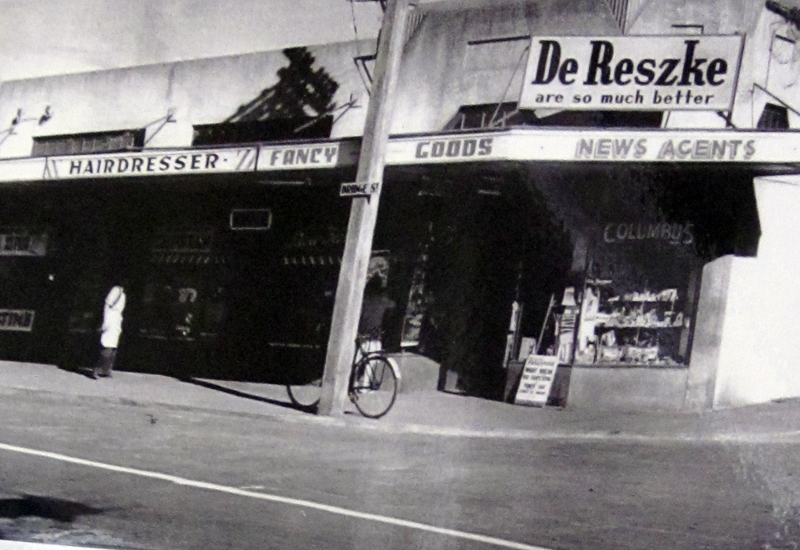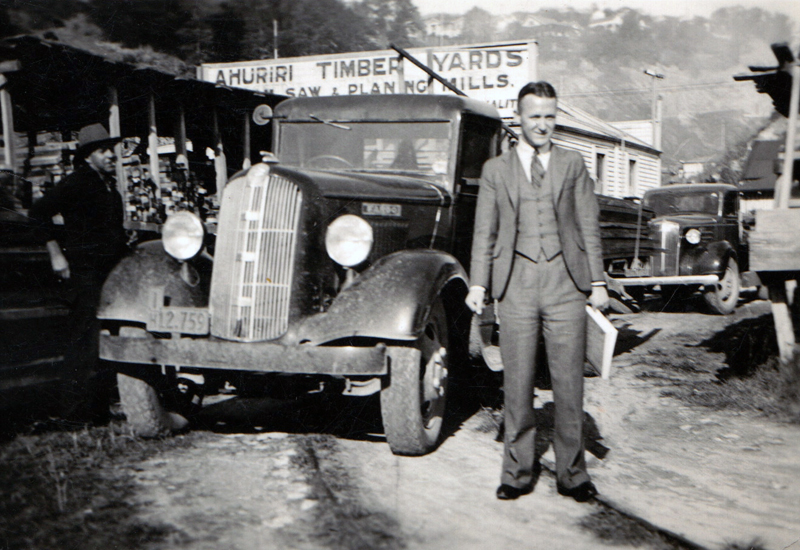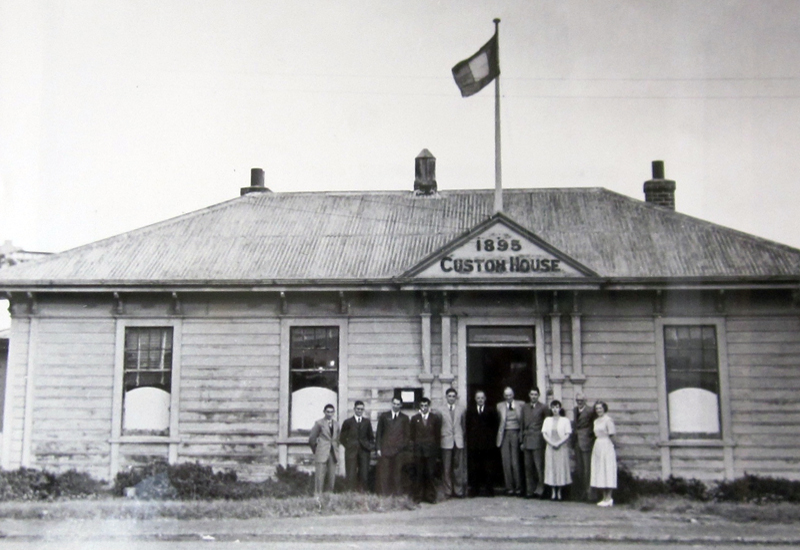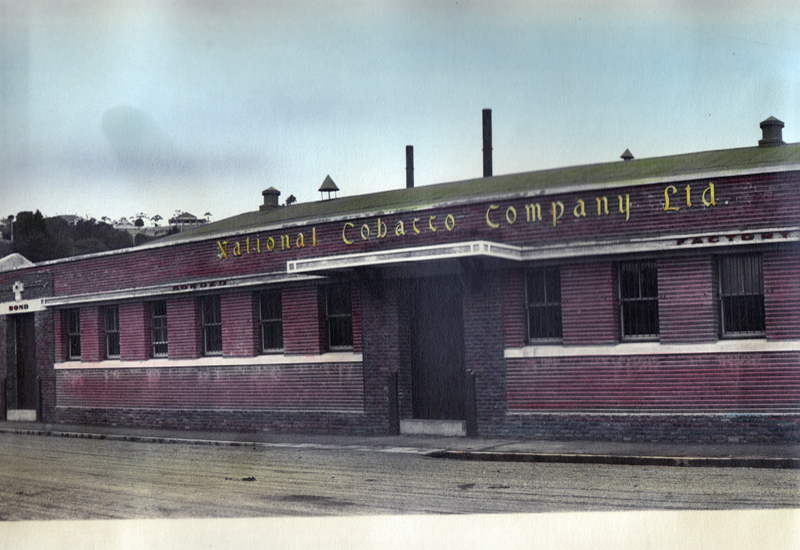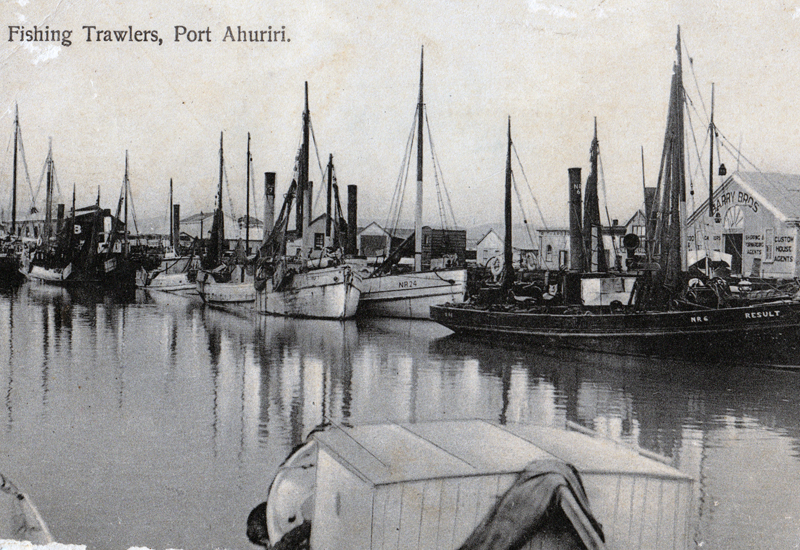The rhythms of life in the community at the Port took place in and amongst the noises, energy and workers of the industries around them.
Central to the history of Ahuriri was of course the Port itself, and many of the other industries were related in some way to it. The Port was the beginning (and end) of the transport chain run by firms such as Barry Brothers, Williams & Creagh and FG Smith. Fleets of ‘lighters’ (small, flat bottomed boats) run by companies like Richardson & Co carried the goods to and from the large international ships (called “Home Boats”) that couldn’t berth close at shore, and of course the ‘wharfies’ and ‘watersiders’ – often hired on day-by-day, piecemeal basis with little security, formed the rough-and-tumble community and life of the place – with their own pubs, rituals, language and customs like a regular Wednesday afternoon brawl outside the pubs.
The woolstores brokered and stored the wool for export in large barns near the Port, and were especially busy after the summer shearing months.
Fishing was another important industry. Trawlers moored in the Iron Pot would leave at a time in the morning depending on the fishing grounds they here headed to, and return in the late afternoon – the ‘put-put-put’ of their engines forming part of the sound and time-keeping of the place. Kids would often watch the boats come in and out, and families from the fishing community – from the Shetlands, Scotland, England, Italy, Norway, would listen to the short-wave radio call signs for their father or husband’s boat to know they were safe. Vince Picone, from a Sicilian family fishing tradition, whose father Jimmy ran one of the trawlers, remembers several tragedies that had occurred signaled by boats not calling-in, and how the “whole community pulled together.” Fish was sold in local sheds and shops, transported to other cities- mainly Palmerston in ice-cooler trucks, or sold directly from the boat. After unloading their catch they would often string up the undersized fish (usually Sole) and hand them to anyone waiting on the wharf. These were called ‘strings of charities’.
Other businesses, trades and industries at the Port included: Amner’s Lime Works in Milton Road, Plowman’s Airated Drink factory on Battery Road.

